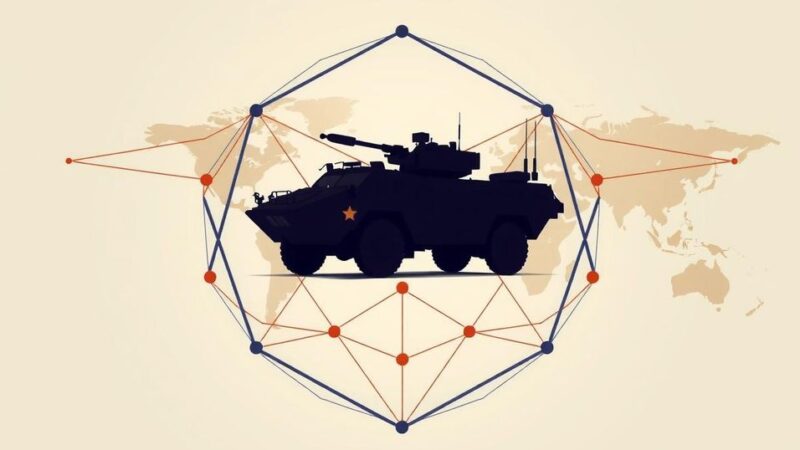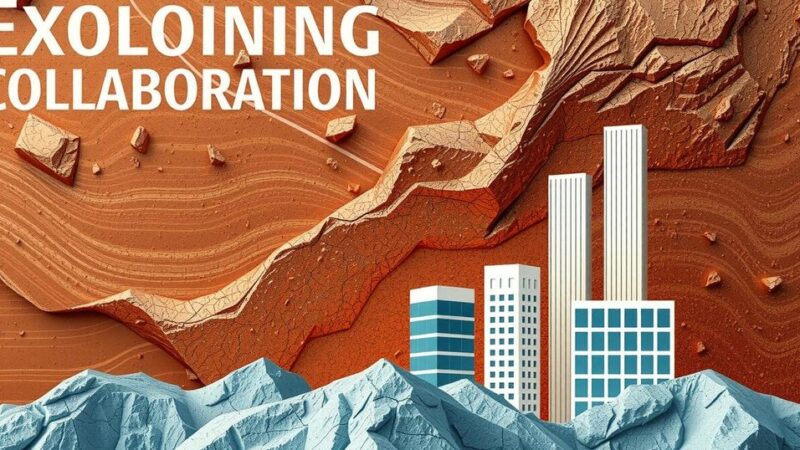The Democratic Republic of Congo will intensify measures against companies sourcing minerals from its conflict-ridden eastern region, with particular concern over ties to violence and smuggling through Rwanda. This follows warnings issued to corporations such as Apple Inc., which have been implicated in contributing to the humanitarian crisis. The Congolese government seeks to hold companies accountable while pursuing sanctions against Rwandan leaders involved in the ongoing conflict.
The Democratic Republic of Congo intends to intensify regulatory efforts against companies sourcing minerals from the violence-stricken eastern region, where smuggling exacerbates a significant humanitarian crisis. Authorities have alerted companies, including Apple Inc., regarding potential ties between their procurement of minerals like tin, tantalum, and gold and ongoing violence, as these resources are frequently funneled through Rwanda. The Congolese government, represented by Foreign Minister Therese Kayikwamba Wagner, is broadening its investigation to encompass additional corporations, emphasizing the importance of scrutinizing supply chains to hold entities accountable for destabilizing the region. Since conflict erupted after the Rwandan genocide nearly 30 years ago, eastern Congo has been plagued by violence fueled by its mineral wealth, particularly tantalum, a key component in portable electronics. Minister Wagner highlighted that smuggling in the region has resulted in substantial financial losses for the country. Recent actions include a focus on the M23 rebel group’s takeover of the Rubaya tantalum mine, with allegations supported by the U.S. and UN concerning Rwanda’s military support for these insurgents, a claim that Rwanda has denied. A UN expert panel earlier this year declared that minerals sourced from Rubaya do not meet trading eligibility due to their connections to violence. While Apple has asserted its due diligence practices, Congo continues to experience severe dislocation, with over six million individuals displaced, greatly complicating humanitarian responses. Efforts for peace negotiations with Rwanda are underway, led by Angola and involving U.S. support, although the Minister advocates for a deliberate approach to ensure sustainable resolutions rather than rushed agreements. Concurrently, there are calls for sanctions against specific Rwandan leaders accountable for the conflict, aimed at holding them responsible while making clear that the sanctions do not target the Rwandan populace. The M23 group claims to champion the rights of Tutsis and other Rwandan language speakers within Congo, while both the U.S. and EU have imposed sanctions on Rwandan military officials and various militia members implicated in grave human rights violations. Underlining the lengthy nature of the conflict, Minister Wagner insists on the necessity of learning from historical mistakes to inform future negotiations.
The context of this article revolves around the ongoing conflict in the Democratic Republic of Congo, particularly in its eastern regions, where a wealth of natural resources, including tantalum, tin, and gold, are linked to extensive and complex humanitarian crises. This situation has persisted since the aftermath of the Rwandan genocide, which catalyzed cross-border violence and the proliferation of multiple militia groups within the DRC. The Congolese government is now taking steps to mitigate the impact of foreign corporate actions that contribute to this instability, recognizing the extensive financial implications of mineral smuggling and the broader geopolitical dimensions of the conflict.
In conclusion, the Democratic Republic of Congo is proactively addressing the issue of conflict minerals by holding corporations accountable for their sourcing practices and investigating their links to ongoing violence. The government’s efforts to clamp down on mineral smuggling are coupled with calls for international support in sanctioning those responsible for fueling regional instability. The complexity of the situation necessitates a careful and informed approach to ensure the protection of human rights and the stabilization of the region.
Original Source: www.bnnbloomberg.ca







